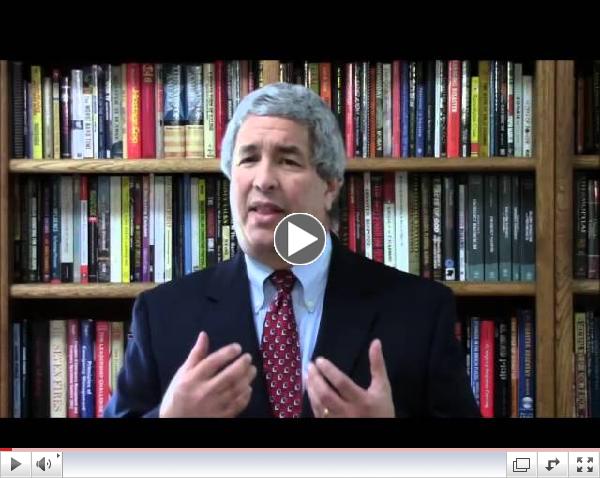|
Exploring Emergency Management & Homeland Security
|

Updated NIMS Training Program
by Timothy (Tim) Riecker
FEMA recently released an updated
NIMS Training Program
document. While the document addresses new emergency operations center (EOC) and provides recommendations for joint information system (JIS) and Multi Agency Coordination (MAC) Group training, it doesn't give us anything really visionary, it simply captures what is. Granted, no where in the document introduction does it say that it's intended to be a visionary document or something that is goal setting in regard to NIMS training, but to be honest, it should be. I'd like to see a more frequently updated document that not only establishes a current standard, but establishes goals for forward motion and focus.
I'm also disappointed with the insistence that that ICS 400 remains yet another 'check-the-box' style of course. As has been mentioned in the past, the ICS 400 is truly an advanced level course that needs to have a bit more context applied in terms of the target audience - not simply 'incident personnel designated as leaders/supervisors'. Most people taking this course simply don't need it. In further regard for the ICS 400 course, however, I would say that should also be included in the more advanced levels of training for EOC personnel. Similar to the true need that does exist at higher levels of ICS training, the ICS 400 does have similar value in this track, as EOCs are often key elements of these more complex incident management structures and relationships that are discussed in the ICS 400.
Speaking of training for EOC personnel, I'll continue to rail against the ELG 2300 course. While it does have some value and may have a place in the training program for EOC personnel (mostly for those planning EOCs, not necessarily working in EOCs), it is not an equivalent of the ICS 300 course for an EOC environment. The ICS 300 course still stands as the course with the highest utility for incident management personnel, though still itself requires considerable improvements.
____________________________________________
© 2020 -
Timothy Riecker, CEDP
Tim Reicker is a founding member, partner and principal consultant with Emergency Preparedness Solutions, LLC, a private consulting firm serving government, businesses, and not for profit organizations in various aspects of emergency and disaster preparedness.
|
|
Bernstein Crisis Management
|

Avoiding Reputation Management Issues While Discussing Social Change
by Erik Bernstein
In the midst of widespread demands for change across America and around the globe, many brands are shifting tones in their marketing efforts to share with powerful messages of support for the Black Lives Matter movement. It's a welcome sight, but it's also dangerous territory to engage in without doing some serious internal reflection first. Questions like,
"Have we been socially responsible within our own organization?",
"Do we plan to actually take action by enacting changes or contributing to a cause?", and
"Are there past negatives or skeletons in the closet that could alter how audiences react to what we share?", need to be asked and answered with complete honesty if you're going to avoid creating a reputation management issue.
Let's be real - it's well known that the trend towards corporations acting in a more "socially responsible" way has come as much through hard-nosed analysis of gains and losses as a will to do good, but that doesn't mean companies are free of the obligation to both
appear to
and
actually be
following through on the expectations they create by joining in the conversation about social issues. The public is savvy to signs of empty hashtag activism, and you better believe there are several groups out there tracking what was said by major corporations in regard to BLM, and what was actually done. If you're caught abusing related hashtags and social media events simply to boost sales, chances are high you will be called out, and your reputation will suffer.
For brands that do plan to truly engage in social change, there are rewards to be had, as demonstrated by the results from
Edelman's Trust Barometer 2020
Special Report: Brands and Racial Injustice in America. Some telling stats from the report include the finding that a whopping 82% of the 2,000+ consumers surveyed said brands making a stand against systemic racism would keep or gain their trust (four times the number who responded that speaking out would cause them to lose trust), and 60% of those surveyed stating how a brand responds over the next several weeks will influence whether they buy or boycott them in the future. The study also lays out hard numbers on what we discussed above, with 63% responding that they need to see concrete action from brands and companies that issue a statement in support of racial equality.
Where does this all tie in to
crisis management
? When you break it down, what we see at the core of nearly every crisis is a clash between expectations and reality, and it's not much of a mental stretch to understand both how that applies to the current situation as a whole and to brands directly. A common pitfall for organizations of all kinds is to assume they know what the expectations of their core audiences are and how to properly measure them, all while utterly failing to get a proper handle on what exactly it is people want them to do or whether they're actually doing it well. Check your moral compass, ensure you can keep promises before you make them, and enact measures to understand the expectations of key stakeholders, then act on them in a timely fashion. That's the way to walk your talk and be the change you want to see as a brand today without running into trouble.
________________
______________________________
Erik Bernstein is Vice President of Bernstein Crisis Management, a specialized firm dedicated to providing holistic strategies for managing crisis situations.
|
On the morning of June 1, 1921, an armed mob of white men using machine guns and biplanes, shot and burned their way through the black community of Greenwood. By the end of the massacre, only burned out ruins remained of the 34 square blocks that had been the most prosperous black community in the United States. This documentary from the CBS news program Sixty Minutes from 2015 gives an overview of the events leading up to the massacre and how the events of 1921, although concealed in history books, still affects the community today. Much of the story is told through interviews with the survivors of the massacre. |
The following are excerpts from my blog
Canton on Emergency Management. Please visit my blog to see the rest of my articles.
Social media is often pilloried as a source of misinformation and fear. But it can also offer tools to bring people together in these times of social distancing.
|
|

Welcome to the June edition of E
mergency Management Solutions
.
A spate of wildfires in California this month was a reminder that disasters don't stop because you're in the middle of another crisis. COVID-19 infections are on the rise, slowing or stopping planned reopening in many counties, but we are also entering fire season here in California and it looks to be another severe one. This is why it is so critical for emergency managers to be focused on all hazards and not be consumed by what I call "the flavor of the month" disaster. We need to view the big picture if we are to truly protect the communities we serve.
This month, Tim Riecker offers his perspective on the updated NIMS Training Program and Johnathan Bernstein looks at expectations and reality in reputational risk. My article this month considers a possible unintended consequence of the "defund the police" movement and its potential impact on emergency management budgets.
Be well!
|
|
_
________________________________________________
Will Defunding Police Defund Emergency Management?
5 Ways to Defend Your Budget
_________________________________________________
The recent events in the United States have led to an outcry of, "defund the police," probably the worst slogan for a movement ever created. The term does not actually mean eliminating police departments but rather demands re-envisioning how communities deal with public safety.
Unfortunately, as can be expected in such cases, local politicians are jumping on the bandwagon to show immediate progress. Immediate progress means, in many cases, making immediate cuts to department budgets without developing a strategy for how departments will cope with the shortfall and how those funds will be used.
The city of Oakland, CA, for example, has proposed a cut of $12 million to the police department in response to a city councilwoman's proposed budget amendment for a $25 million cut. New York has proposed a $1 billion cut to their $6 billion budget. Minneapolis has gone even further; the City Council has announced plans to disband its department in favor of a community based public safety program.
______________________________
_______________________
________
If you are having trouble viewing my featured article, try clicking on the link at the top of the page. You can always find my articles in the white paper section of my blog site, Canton on Emergency Management.
|
|
Resources
FEMA Releases Revised NIMS Training Program
FEMA's National Integration Center has released the updated
National Incident Management System (NIMS) Training Program, which sets forth a structure for national training and establishes the roles and responsibilities of FEMA and members of the NIMS stakeholder community. It identifies specific activities for developing, maintaining, and sustaining a training program that prepares all incident personnel to understand their respective responsibilities and work together during incidents. The revised NIMS Training Program introduces training Focus Areas based on incident personnel's position and responsibility. These areas include the Incident Command System, Joint Information System, Emergency Operation Center, and the Multiagency Coordination Group.
FEMA Releases Business Emergency Operations Center Quick Start Guidance as America is Opening Up Again
Engagement and integration of businesses and other organizations is critical as communities work to implement reopening plans aligned to the President's Guidelines for Opening Up America Again and informed by available Community Mitigation Guidance and guidance for businesses and workplaces. The
Business Emergency Operations Center (BEOC) Quick Start Guidance provides states, locals, tribes and territories with foundational concepts for establishing a Business Emergency Operations Center (BEOC) to support their response and recovery operations for COVID-19.
Establishing a BEOC provides a jurisdiction a consistent integration point for private and public coordination for sustained response and recovery operations throughout the COVID-19 pandemic, with no requirement for physical contact.
National Engagement for the NIMS Guideline for Resource Management Preparedness
FEMA's National Integration Center is seeking public feedback on the draft NIMS Guideline for Resource Management Preparedness document. This National Engagement Period will conclude at 5:00 pm EDT on July 23, 2020.
The NIMS Guideline for Resource Management Preparedness supplements the NIMS Resource Management component by providing additional details on resource management preparedness processes, best practices, authorities, and tools.
FEMA will host a series of webinars to outline the NIMS Guideline for Resource Management Preparedness and answer related questions. All webinars are open to the whole community.
___________________________________
Professional Development Opportunities
July 12-15, 2020
Virtual Workshop
Since 1975, the Natural Hazards Center has hosted the Annual Natural Hazards Research and Applications Workshop in Colorado. Today the Workshop brings together federal, state, and local mitigation and emergency management officials and planning professionals; representatives of nonprofit, private sector, and humanitarian organizations; hazards and disaster researchers; and others dedicated to alleviating the impacts of disasters.
Nov. 13-18, 2020
Long Beach, California
The goal of the IAEM Annual Conference is to improve knowledge, competency level and collaborative skills. IAEM accomplishes this by attracting relevant high-profile speakers to address current topics and practical solutions.
|
|
Until recently, most Americans had never heard of the Tulsa massacre that resulted in the destruction of 34 square blocks of the most affluent African community in America and left over 300 people dead. This shameful episode has been almost completely erased from history.
Madigan's book sets the context for the event, tracing the individual history of key individuals and the systemic racism that was rampant in the United States. He then gives a vivid description of the events leading up to the massacre and the conflict that saw an armed mob armed with machine guns and biplanes turn on their neighbors and erase an entire community. These descriptions are more poignant as they are given through the stories of the survivors on both sides.
Given the current climate, Madigan's book provides a basis for understanding some of the issues facing our communities.
______________________________________
|
Emergency Management: Concepts and Strategies for Effective Programs
Second Edition
by Lucien G. Canton
This book looks at the larger context within which emergency management response occurs, and stresses the development of a program to address a wide range of issues. Not limited to traditional emergency response to natural disasters, it addresses a conceptual model capable of integrating multiple disciplines and dealing with unexpected emergencies.
|
|
Need a speaker for your next conference? I offer keynotes, seminars and workshops.
 |
|
Three Reasons Why I'm the Right Speaker for Your Conference
|
|
|
Speaking Engagements
Conference cancelled? Consider a virtual conference or a webinar!
|
|
| |
|